![]() Cormac McCarthy and friendsThe following violent passages in Cormac McCarthy's novels made me physically illby Maren Gillman
Cormac McCarthy and friendsThe following violent passages in Cormac McCarthy's novels made me physically illby Maren GillmanThe judge sat with the Apache boy before the fire and it watched everything with dark berry eyes and some of the men played with it and made it laugh and they gave it jerky and it sat chewing and watching gravely the figures that passed above it... Toadvine saw him with the child as he passed with his saddle but when he came back ten minutes later leading his horse the child was dead and the judge had scalped it.
-- Blood MeridianThe dead man was watching him from the floor of the car. Ballard kicked his feet out of the way and picked the girl’s panties up from the floor and sniffed them and put them in his pocket. He looked out the rear window and listened. Kneeling there between the girl’s legs he undid his buckle and lowered his trousers. A crazed gymnast laboring over a cold corpse.
-- Child of GodAt the farther end the bridge gave onto a small street that ran along the river. Here the Vandiemenlander stood urinating from a stone wall into the water. When he saw the judge commit the dogs from the bridge he drew his pistol and called out.
The dogs disappeared in the foam... The Vandiemenlander raised and cocked the pistol... The pistol bucked in his hand and one of the dogs leaped in the water and he cocked it again and fired again and a pink stain diffused. He cocked and fired the pistol a third time and the other dog also blossomed and sank.
-- BMThe dead lay awash in the shallows like the victims of some disaster at sea and they were strewn along the salt foreshore in a havoc of blood and entrails. Riders were towing bodies out of the bloody waters of the lake and the froth that rode lightly on the beach was a pale pink in the rising light. They moved among the dead harvesting the long black locks with their knives and leaving their victims rawskulled and strange in their bloody cauls.
-- BMHis neck had been broken and his head hung straight down and it flopped over strangely when they let him onto the ground. The hills beyond the minepit were reflected grayly in the pools of rainwater in the courtyard and the partly eaten mule lay in the mud with its hindquarters missing like something from a chromo of terrific war. Within the doorless cuartel the man who’d been shot sang church hymns and cursed God alternately. The squatters stood about the dead boy with their wretched firearms at rest like some tatteredemalion guard of honor.
-- BMThe way narrowed through rocks and by and by they came to a bush that was hung with dead babies. . . These small victims, seven, eight of them, had holes punched in their underjaws and were hung so by their throats from the broken stobs of a mesquite to stare eyeless at the naked sky.
-- BMAll about her the dead lay with their peeled skulls like polyps bluely wet or luminescent melons cooling on some mesa of the moon. In the days to come the frail black rebuses of blood in those sands would crack and break and drift away so that in the circuit of a few suns all trace of the destruction of these people would be erased.
-- BMWerner Herzog and Cormac McCarthy Talk Science and Culture![]()
'Physicist Lawrence M. Krauss is joined in his exploration of the question
Who are we, and what is our place in the universe? by the great filmmaker Werner Herzog (
Grizzly Man, Encounters at the End of the World) and 2000 Pulitzer Prize winner Cormack McCarthy (
The Crossing, The Road, No Country For Old Men). They discuss bottleneck theory, complexity science, the history of painting, and the upcoming rise of the machines. High point: Herzog reads a passage from McCarthy’s
All the Pretty Horses (38:00).'
-- Open Culture![]() Listen hereSome people who hate Cormac McCarthy and why
Listen hereSome people who hate Cormac McCarthy and why![]()
'Back in 1977 when I was working for Salomon Brothers, the programmers took a workshop on writing memos that was better than any writer’s workshop class I ever took at Bard or NYU. We learned to avoid the passive voice, number one (you’ll rarely see them in my articles.) The next thing was to understand the Gunning Fog Index that rated prose on the basis of readability, including the average number of words in a sentence, etc. Running a typical Cormac McCarthy sentence against a Gunning Fog Index calculator returned a rather feverish reading of 102.2. Wikipedia states that texts for a wide audience generally need a fog index less than 12 and those for universal audience require an index of less than 8.'
(much more)-- Louis Proyect'I tried to read a Cormac McCarthy book and thought, Why doesn’t this cocksucker use quotation marks? I picked up another Cormac McCarthy book and saw that there were six or seven consecutive pages in Spanish. I didn’t know what it meant. The New York Times ... what did they say about me ... "Reading Ellroy can be like deciphering Morse code tapped out by a pair of barely sentient testicles," but they love this McCarthy's motherfucking shit.'
-- James Ellroy'I checked out the back cover blurbs of all the McCarthy novels I could find (and there are many, including
Suttree, Cities of the Plain, All The Pretty Horses, Blood Meridian, No Country For Old Men). Almost every book is described as taut. Taut, taut, taut. Cormac McCarthy has been publishing novels since 1965 -- how long can a guy be taut before he finally snaps? Or, more to the point, how long can he be taut before I snap? Because McCarthy keeps turning these taut books out, year after year, with characters from Central Casting and props left over from
Heaven's Gate, and I'm sick of hearing top critics talk about how great they are.'
(more)-- Levi Asher'
Blood Meridian is Horrible. This is probably the most pulpy, overwrought, melodramatic cowboy vs. Indians story ever written.'
-- Nicholas Sparks'Let’s get this straight out of the way: Cormac McCarthy doesn’t really know how to write a screenplay. The McCarthyisms are all present, the themes and fixtures are there, but the coherence is lacking and much of the chaff remains unseparated from the wheat. You’ve probably heard about the car-fucking scene, right? There is a car-fucking scene. Somehow this made it into the final draft. Cormac McCarthy presumably wrote several drafts of this screenplay, his bony, churchyard-gray knuckles pounding out the tarnished keys on his vintage 1913 typewriter, dust pluming upwards, the typewriter’s Ford V8 engine hacking out bits of itself on the floor – and a scene that made it to the final draft is one where the character of Malkina fucks a car.'
(cont.)-- themenaceofonjects'A friend said "oh gee, you should sell it, they sold Cormac McCarthy's typewriter." And I said, "yeah, Cormac McCarthy who ripped off my story "A Boy and His Dog" to do
The Road. I said how much did they get $20?" And he said "they got $220,000 because they gave it to charity and I said "that's nice."'
-- Harlan Ellison'I love cumulative syntax if done properly, but 245 words is unnecessarily long for a sentence. It may make grammatical sense, and it may conjure up some interesting imagery, but is it well-written, was it necessary, did it add to the story? The answer, for me at least, is a resounding no. I wish that this was the only example of an unnecessarily long exercise in creative writing, but the book is littered with descriptions like this on every other page. It gets quite trying, and is quickly rendered redundant by its own pomposity. It is almost as though McCarthy is desperately screaming to his readers: “this is literature!”' --
(more)-- Jon CrenshawPainter, writer and filmmaker Peter Josyph paints "Cormac McCarthy's House."Cormac McCarthy Attempts To Write A Seinfeld Sceneby Brandon GorrellKramer staggered erect through the entrance and the man inside looked at him once or twice in familiar acknowledgment before returning to his pen and sheaf of papers, a cynical goblin emerged out of some alien trance of alchemist figures or comedic lines.
Hell-ooooo, Kramer said.
Seinfeld studied him.
Hell-ooooo, he said. A voice that went from room to room and back again.
A fearsomely bald squatter bespectacled and grinning from a blue upholstered sofa that had seen better days observed with something like amusement the avian newcomer, a gigantic egret no less a child of this city than the ragpicker begging for change, the bodega immigrant selling his wares. Hell-ooooo, Costanza said. His nosed twitched and he corrected his spectacles.
Kramer was looking at him crazily. He made his way in past Seinfeld and his jesternotes to the eastern facing window. Outside curried clumps of refuse set in motion by slow moving street sweepers and an ashen breeze. A family of trashpickers were packing flat cartons into a derelict shopping cart, the children scurrying among the rancid cans like rats and as graylooking. None spoke. A buzzing at the door.
Yeah, said Seinfeld.
(cont.)"Eternal Ash" an ambient track inspired by The Road by Cormac McCarthyA Concordance to Suttree by Cormac McCarthyWords that occur more than 471 times are not included in this concordance:
a(4823) all(483) and(7621) at(1298) back(731) by(502) dont(489) down(904) for(614) from(998) had(624) he(4643) her(741) him(1195) his(2873) i(1617) in(3696) it(1847) like(716) looked(655) no(507) of(3895) old(742) on(1597) one(669) out(1017) said(1768) she(918) suttree(1577) that(893) the(13175) them(551) there(677) they(952) to(2812) up(1175) was(1493) went(578) what(643) where(476) with(1827) you(1969)
Right margin hyphens in single words have been removed. In all other cases brackets mark such hyphens since, whether hyphenated or compounded, the manuscript form is unknown.
Words containing special foreign language characters may not appear where expected alphabetically. The special characters are alphabetized as if they come after the letter Z.

11 386
1504 304
18 433
1884 433, 454 1942 75
1952 220
20 386
21505 85, 462 32 403
87 220
9 220
aaangh 56
ab 79, 112, 131, 200, 205, 226, 228, 230, 246, 374, 440, 446, 465
ab's 107, 226, 446
abandoned 3, 91, 150, 161, 211, 367, 416, 421, 441
abandonment 3
abbatoir 67, 299
abdomen 16
abednego 29
aberrant 3, 290
abet 200
able 273, 367, 442
ablutions 404
aboard 8-9, 107, 127, 214, 250, 309, 313, 319-320, 324, 363, 371, 381
about 3-4, 7-8, 10-11, 15, 17-20, 22-24, 26-27, 31-36, 38, 40, 42, 44-45, 48, 50-51, 54-55, 57-61, 64-65, 68, 70-71, 73-77, 86- 88, 91-93, 95-101, 103, 105, 108-110, 114- 118, 121, 123-127, 134, 138-141, 143-145, 148, 152, 154-157, 160, 162, 164-175, 177, 180-183, 186, 189, 191-196, 198-203, 205- 207, 209-213, 216, 218, 225, 227-231, 233, 235, 237, 239-244, 247-249, 251, 253-254, 256, 259, 261, 264-266, 268-270, 273-274, 276, 278-281, 284-285, 288-289, 291-292, 294, 296, 298, 300-302, 304, 307, 309-314, 319-321, 323-326, 328-329, 331, 334, 336- 339, 344-345, 347-348, 350, 352, 355-362, 364-367, 372, 375, 378-379, 381-386, 389,
391, 394-397, 400, 404, 406-409, 412, 414, 416-423, 425, 431, 433-434, 438, 440, 442, 444-445, 447, 450-451, 453-454, 456, 458, 462, 465-466, 468, 470
abouts 141
above 3, 11, 13, 21, 23, 29, 51, 54, 57, 63, 68, 79, 90-92, 99, 107, 113, 120-121, 135- 139, 144, 149-150, 153, 162, 168-171, 177, 186-188, 190, 192, 207-208, 210, 215, 220-221, 223, 228, 238, 249, 256, 261-262, 268, 272, 275, 280-283, 285-287, 290-296, 300, 307, 317, 319-320, 330-331, 337, 351, 353, 361, 363, 371, 375, 382, 388, 392, 395, 397, 400, 402, 405, 408, 410, 419, 426-427, 431, 441-442, 448, 457, 460, 467 abreast 58, 181, 225
abroad 66, 455
abrogate 4
abruptly 79
abscission 80
absence 157
absent 386
absently 274, 321
absolute 275, 440, 458
absolutely 345
absolutes 372
abstractions 453
absurd 409
absurdities 423
abutment 140, 411, 421
accents 386
accommodate 7
accompanied 285
accomplish 470
accomplished 246
accordioned 95
accosted 28, 366
account 212, 242-243, 349, 366, 370, 401, 409
accresced 262
accretion 67, 102
accrue 228
accrued 9, 346 accumulate 149 accumulated 116, 357 accuracy 368 accused 454 accustomed 66 acetylene 262
ache 50
ached 327
acheron 190
acidic 223
acknowledged 229
aclatter 162, 455
acnefaced 254
acolyte 253
acolytes 348
acoustic 90
acquaintance 204
acquainted 344
acrid 137, 254
acridity 28
acrimony 129
across 3, 5, 8-12, 14, 19-21, 29-32, 36, 40, 43, 45, 48, 54, 56, 61, 63-65, 72, 79-80, 82-83, 88, 94, 98-99, 102, 106, 108, 116, 122-123, 125, 132-135, 140, 142, 144, 148-149, 153-154, 156-157, 159, 172-173, 177, 183-184, 187-188, 190-191, 194, 197, 200-201, 206-207, 209, 212, 217, 219, 234, 236-238, 242-243, 247, 251, 254, 257, 263, 265-267, 271, 274, 279, 283-284, 287, 289-290, 292, 294-295, 302-303, 309, 312- 314, 320-321, 325, 328, 331, 337, 340-342, 344, 348-349, 352-356, 358, 361-362, 367, 370, 374, 377, 380-381, 385, 392, 395-396, 398-400, 407, 410-411, 413-414, 417, 421, 425, 434-435, 438, 440-442, 445-446, 458- 460, 462, 465, 467, 469-471
act 375
active 33
actors 391
acts 246
(cont.)![]()
![]()
![]()
![]()
![]()
![]()
![]()
![]()
![]()
![]()
![]() A Few Thoughts on Missing Thumbs in Cormac McCarthy’s The Road
A Few Thoughts on Missing Thumbs in Cormac McCarthy’s The Road'The thumb is very versatile, it is a universal signifier which crosses language barriers and it’s the most flexible part of our hand; we use it to grip things, to steady the barrel of a gun as we take a shot, manacled in chains you would need it to turn a key in a lock. In Shakespeare, to bite one’s thumb was considered an insult, for children it’s a pacifier, for others (when sucked) it’s a sign of cowardice, there’s also the ubiquitous thumbs up – everything is a.ok. But in Cormac McCarthy’s
The Road, things couldn’t be further from the truth, because the thumb or rather lack of, signifies that something terrible has happened in the character’s past.'
(more)-- The Poplar TreeCormac McCarthy's ex-wife Jennifer McCarthy in bizarre arrest![]()
'THE FORMER wife of Pulitzer Prize-winning author Cormac McCarthy has been arrested in a bizarre domestic dispute over space aliens that escalated when she pulled a gun out of her vagina.
Jennifer McCarthy, 48, was arrested in Santa Fe, New Mexico on suspicion for aggravated assault and released on $5000 bail.
'A statement of probable cause, obtained by The Smoking Gun , details the argument that broke out on January 4 between McCarthy and her 53-year-old boyfriend, whose name was redacted.
'They were arguing about space aliens in the morning. McCarthy left the house, then returned and went into her bedroom.
'She came out of the bedroom wearing lingerie with a silver handgun inserted into her vagina.
'McCarthy started to have intercourse with the gun and said "Who is crazy, you or me?", then pulled the gun out of her vagina and pointed it at her boyfriend's head, the boyfriend told police.
'He was scared she would pull the trigger so he took the gun out of her hand and put it in the toilet. McCarthy got the gun out of the toilet and put it in a bin outside.
'Arresting officer Chris Zook found a silver Smith and Wesson in the rubbish outside.
'Jennifer McCarthy and Cormac McCarthy, who wrote
The Road and
No Country For Old Men, divorced in 2006. They have one son together.'
-- news.com.auSteve Davis talks about the Cormac McCarthy ArchivesThe Balzac of Human Trash: Novelist Cormac McCarthy'Ragged transients on horseback. Cave dwelling necrophiles. Stalkers, bums, dregs, exiles and living rot. Humans gone feral, ancient throwbacks, latter day Neanderthals, Homo erecti. Hobbling dobbins, putrescent pooches, vultures, pigs and maggots. These are the life forms on Cormac McCarthy’s fictional planet, crawling across a purposeless no-man’s-land of betrayal, showdown, and death. Like the novelist Honoré de Balzac, who minutely chronicled every aspect of 19th century French society, McCarthy examines exhaustively the reptile brain of Appalachian hillbillies, and assorted Sonoran flotsam. From the 1840s of
Blood Meridian, to the 1950s of Suttree, his characters exist in an eerie periphery to anything civilized. Everything about them, from their clothes, to their food, to their very selves, comes right up out of the same clods cuffed by canny knuckle walkers from the dawn of human origins. The landscape is either arboreal, as in
Orchard Keeper, Outer Dark, Child of God, or xerophytic as in
Blood Meridian, The Crossing, and
All The Pretty Horses. The only urban setting is the skid row jungles of Knoxville in the autobiographical Suttree.'
(cont.)-- John-Ivan PalmerKodi Smit-Mcphee in 'The Road'Cormac McCarthy's The Road: an early draft with cross-outs and author's notesA memory unbidden and sudden burst into the man’s ken. He buckled over the handle of his cart as laughs and coughs poured forth in prolific tandems that ceased only when exhaustion had
made rendered more of either impossible.
What’s so funny? the boy asked.
Nothing, the man said. Uh, hahaha!
Shit. Ahh-ha! Cough. Ha, ha—cough, cough. Keep walking.
The man composed himself with a final grunt. The boy turned away. The man spat. A plume of red spittle marred the ash-caked road between his feet.
A moment later the memory returned
with a speed so fast most people would be like, Wha? to grip the man like a seizure. He took not three steps before collapsing in a fit of antic chuckles.
(cont.)The Hidden Messages in Cormac McCarthy's Blood MeridianExclusive: Cormac McCarthy To Write New James Bond Novel'It is a natural fit. Bond is already a classic McCarthy character. He has a tortured past. His wife was murdered at the end of
On His Majesty’s Secret Service, the only time the cadger ever said “I do.” He has been betrayed by women as many times as he has betrayed them. His moral code is flexible, yet faded. The nagging sense that he is an anachronism is never far below his steely exterior.
'There will be blood. McCarthy always marks his characters for death from the start. His doomed are as visible as black characters in horror films and the jobbing actor who beams down to explore planets in
Star Trek. In McCarthy’s world, their dying is their reason for living. Bond, in many ways is similar. You always know which of the two girls he tangles with will die under a layer of gold paint and who will just get in the way during the climactic showdown. They are mere ciphers. Fleming never could write women. McCarthy, however, will let us love them both, fear for them both, then kill them both in the bleakest possible manner. It will be enough to inspire a surge of applications to MI6 based purely on revenge.' --
(more)-- Edd McCrackenCormac McCarthy & Richard Pearce's 'The Gardener's Son' (1976)10 Insane Things from Cormac McCarthy's The Counselor Script That Didn't Make It On Screen'
The Counselor is one of the most cinematic and uncinematic movies of the year. It’s the former because director Ridley Scott used the production to craft a beautifully uncomfortable atmosphere, truly evoking the themes, ideas, and visuals of scribe Cormac McCarthy‘s writing. Yet, it’s uncinematic because, to no one’s surprise, McCarthy loves to do things his own way. The movie doesn’t give you conventional exposition, backstory, or whatever else audiences might expect from easily digestible and normative filmmaking. The lead,
The Counselor (Michael Fassbender), isn’t given a name. Why? Because he doesn’t need one.
'The script itself is a slightly different matter. The people who loathed
The Counselor, of which there are many, based on its D Cinema Score and a current rating of 37% on Rotten Tomatoes, would have torn the screen apart if Scott used everything that McCarthy provided for him on the page. The script is just that good. Scott’s final product contains both minor and major deviations in McCarthy’s script (which reads more as a novel than a traditional screenplay), and following are ten of the most notable changes.'
(cont.)-- Film School Rejects![]()
![]()
![]()
![]()
![]()
![]()
![]() Here are just some of the words I couldn't find in a dictionary while reading The Road by Cormac McCarthyby Flipping Pencils
Here are just some of the words I couldn't find in a dictionary while reading The Road by Cormac McCarthyby Flipping Pencils"Oil for their little slutlamp to light the long gray dusks, the long gray dawns." (p. 7)
"He descended into a gryke in the stone and there he crouched coughing and he coughed for a long time." (p. 11)
"In an old batboard smokehouse they found a ham gambreled up in a high corner." (p. 17)
"The new snow lay in skifts all through the woods, along the limbs and cupped in the leaves, all of it already gray with ash." (p. 76)
"The world shrinking down about a raw core of parsible entities." (p. 88)
"They were signs in gypsy language, lost patterans." (p. 180).
"They wrapped their feet in sailcloth and bound them up in blue plastic pampooties cut from a tarp and they left strange tracks in their comings and goings." (p. 243)
"The salitter drying from the earth." (p. 261)
"Ten thousand dreams ensepulchred within their crozzled hearts." (p. 273)
"A veteran of old skirmishes, bearded, scarred across his cheek and the bone stoven and the one eye wandering." (p. 282)
If Cormac McCarthy Wrote Toy Story 3![]() (more)A mixtape to read a Cormac McCarthy novelfrom Tiny Mix Tapes
(more)A mixtape to read a Cormac McCarthy novelfrom Tiny Mix Tapes01. Set Fire To Flames - “Your Guts Are Like Mine” (Telegraphs In Negative/Mouths Trapped In Static)
02. Six Organs Of Admittance - Spirits Abandoned (Dark Noontide)
03. Set Fire To Flames - “Wild Dogs Of The Thunderbolt , ‘They Cannot Lock Me Up… I Am Eternally Free…’ (From Lips Of Lying Dying Wonder Body #2)” (Sings Reign Rebuilder)
04. Earth - “Raiford (The Felon Wind)” (Hex, Or Printing In The Infernal Method)
05. Richard Thompson - Treadwell No More (Grizzly Man Soundtrack)
06. Ernst Reijseger - “Child’s Footprint Duo” (Cave Of Forgotten Dreams Soundtrack)
07. Eyvind Kang - “Rabianara” (Athlantis)
08. Odetta - “Another Man Done Gone” (Sings Ballads and Blues)
09. Wolves In The Throne Room - “Permanent Changes In Consciousness” (Celestial Lineage)
10. Thee Silver Mt. Zion Memorial Orchestra - ‘Piphany Rambler (Kollapz Tradixionales)
Blood Meridian - AUDIOBOOK - by Cormac McCarthyDevastation of Earth: an Ecocriticism Study in Cormac McCarthy’s The Road'
The Road greatly represents a study of Ecocriticism. It portrays the colourless world because of devastation of earth. This devastation issue is common object of the Ecocriticism study. The Road continually reminds us of the bleakness of the landscape in the earth. As readers, we only experience bright colours through the characters' dreams or memories, if someone happens to bruise or bleed, or through fire or flare guns. The rest of the time we see a gray ash covering the landscape. As a reality, our landscape is actually green and natural. However,
The Road shows the possibility of devastation of earth when humans did devastation to the nature and they can’t live in harmony with the nature. Therefore, there is no doubt that
The Road becomes the most influencing novel toward environment. It proves from the acclaim written in the novel by George Monbiot, an environmental campaigner that says "It could be the most important environmental book ever. It is a thought experiment that imagines a world without a biosphere, and shows that everything we value depends on the ecosystem."'
(more)-- Fahmi LessonCormac McCarthy Flaunts Sexy New Beach Body![]()
'CABO SAN LUCAS—Acclaimed novelist Cormac McCarthy, 79, wowed Cabo beachgoers Wednesday after debuting his sizzling new summer physique in a light-blue Vilebrequin swimsuit that showed off at least 20 extra pounds of lean muscle. “I got into this routine where I was just hitting the gym every morning, writing some of my novel in the afternoon, and then hitting the gym again later that day, and it paid off,” the Pulitzer Prize–winning author of
Blood Meridian told reporters as he massaged his washboard abs with deep tanning oil. “I didn’t go in for any of that carve-and-starve stuff, so I just upped my cardio, did two-a-days, and took an Isagenix whey protein shake every morning. Feels good to look good, you know?” At press time, the prose master was performing a surfside workout sequence of lunges and squat thrusts.'
-- The Onion![]()
![]()
![]()
![]()
![]()
![]()
![]()
![]() Cormac McCarthy's House Burns
Cormac McCarthy's House Burns![]()
![]()
![]()
'KNOXVILLE, Tenn. (AP) -- The boyhood home of Pulitzer-winning author Cormac McCarthy, long abandoned and overgrown, has been destroyed by a fire even as preservationists tried in recent months to save it. Neighbors reported the fire around 5 p.m. Tuesday. The cause was under investigation, said Bill Kear, spokesman for the Rural Metro Fire Department. Investigators say a homeless person may have been staying there, although nobody was in the home when firefighters arrived.
'The house, which may have been built around a pre-Civil War log cabin, was McCarthy's home for at least a decade until he graduated from Catholic High School, and possibly while attending the University of Tennessee for a year before joining the Air Force in 1953. He came back to UT for two more years in 1957-1959, but left before graduating.
'A group of McCarthy fans were interested in buying and restoring the house, which her organization listed among the city's most endangered local places in 2008. But she said she could never locate the owner. McCarthy's parents sold the house in 1967 and moved to Washington, D.C. The fire was a blow for a city that also failed to save the early homes of Pulitzer-winning writer James Agee and poet Nikki Giovanni.'
-- Knoxville NewsLookalike, name-alike folk singer Cormac McCarthy sings 'Great Big Day'Cormac McCarthy Ruined My Sex Life'Congratulations! If you are a high school guidance counselor or health teacher, you can pretty much retire now. All the hours spent discussing the dangers of teen pregnancy, handing out condoms and worrying about your students’ future are over. Just show these impressionable young gents and ladies
The Counselor. Cormac McCarthy’s screenplay certainly made me abstinent.
'The film is loaded with eroticism. It kicks off with an awkward scene where Penelope Cruz essentially awards Michael Fassbender the Nobel Prize for oral sex. But that is just the start of this odd endeavor. The tipping point comes about another hour into the show when Cameron Diaz’s carnal desires are quenched by a Ferrari. Specifically, the car’s windshield.
'It was at this point where I found my phone and started shopping for a plastic bubble to live inside. Director Ridley Scott and screenwriter McCarthy’s depiction of erotic automotive acrobatics made me never want to come into contact with another human being again for fear we might sleep together.'
(cont.)-- Patrick WensinkJames Franco's Tossed Off And Drab Cormac McCarthy Adaptation Child Of God![]()
'Franco doesn't appear to be sure of the tone to take. There's a lacing of black comedy through much of the second half, but Ballard's acts are so repellent (without ever quite being as transgressive as they're perhaps meant to be) that it's hard to find it funny. It's not that the director is lacking in compassion towards his subject—there's some in there—but Ballard's clearly suffering from a mental illness, and Franco seems to want the audience to find that amusing somehow. The film's final sequence, set in his cave hideout, is easily the film's strongest because it's happy to play it straight.
'That scene is unfortunately hampered by an unnecessary and distracting cameo from the filmmaker. He's flat and unconvincing, traits which extend to most of the supporting players. But more critically for a movie that centers so tightly on one figure, Scott Haze simply isn't good enough as Ballard. His rodent-like physicality and thick drawl (incomprehensible enough that the film is presented with English subtitles) are effective, but it's a very mannered and theatrical turn. Flaws with the filmmaking could perhaps have been forgiven for a tour-de-force central turn, but there's little to learn about the character once the first couple of reels are through.
'The whole thing feels sort of tossed off, like it was made by film students over a couple of weekends. And that's the root of our problem with Franco's directorial work. His restless and experimental nature is to be lauded to a degree, and you feel that if he were to focus his considerable energies on a single project, then he might be able to come up with something special. Because otherwise, if he can't make a piece of material like
Child Of God into something worth watching, we'd probably rather see him spend his time in other people's movies if necessary.'
-- IndiewireStrange dogAn Unpublished Novelist's Week as Fake Cormac McCarthy'Michael Crossan, a hard-working, unpublished writer from Scotland, got the literary introduction of a lifetime last week--almost. His tweets had caught the eye of novelist Margaret Atwood, who alerted fellow A-list authors and “T-pals” William Gibson, Amy Tan and Neil Gaiman. Alas, it wasn’t Crossan she thought she was introducing but rather the universally-lauded novelist and newbie screenwriter Cormac McCarthy and his improbable new Twitter account. After all, McCarthy is a famous recluse and not only does he refuse to talk about his work -- unless in the warmth of Oprah's cameras -- he doesn’t even have a computer.
'But Atwood could be forgiven for biting hard on the fake account, created, in Crossan’s imagination, on a mobile phone by McCarthy’s young son. (Crossan let us log into the Gmail account that he used to register the fake account where an email was waiting from Twitter: "Hi, CormacCMcCarthy. Please confirm your Twitter account by clicking this link.") His tweets about children and dogs and family time were laconic, earthy, and punctuationally-iffy enough that they could have issued from a 78-year-old trying to grasp a smartphone. Sample: “Please stop. This phone is a toy I should have scorned. All the rest is decency.” Also: “Already finger waggers spit envy and spite and doubt. On a beautiful day this stranger was just saying hello.” And, in a deft admission of the fakery: “Sidewalk starers may soon sneak aboard. Is it him. He had no blue badge. So it is not him then.”
'By the time McCarthy's publisher Vintage Books announced that they had confirmed the account was fake, five hours after Atwood's welcoming tweet, there were many who were fooled. Twitter co-founder Jack Dorsey gave @cormaccmccarthy a warm welcome, quickly withdrawn, and, in the week before the account was suspended, Crossan accumulated more than 6,000 followers. Once Twitter HQ cottoned to the ruse and the account took a captive bolt to the forehead, Crossan issued apologies from another account, which is how we connected. Here is our interview with Michael Crossan--writer, portrait photographer and now, to Margaret Atwood’s mind, “leg puller.”'
(cont.)-- Matt Creamer, The Wire*
p.s. Hey. ** _Black_Acrylic, Hi, Ben. My turntable is in LA, and I've had however many ... almost eight years sans home vinyl playing, and it's much missed. I still buy vinyl, but now it just sits there looking big and square and sweet. ** Jonathan, Hi, J. I wondered whether you would know Road Records. I read a little about it while making the post, and it seemed very cool and loved. You're coming to Paris? Whoa. That's news. Actually, Paris totally sucks for record stores, or it has. I'll ask Stephen if he has found anything recently, but, after the great and sublime Bimbo Tower closed, it seemed to become a wasteland, and I can't figure out why Paris wouldn't have a flurry of great record stores the same way they do bookstores. The filming goes well. A little bunch of problems at the moment that we have to solve quickly, but I think we will. No, I hadn't seen that PAF or heard of it. I'll go check it out in depth in a bit. Nice to see you! Awesome that I'll get to see you right here! ** Bitter69uk, Hi, man. True, very. You good? ** Hyemin Kim, Hi. That one Buffalo record store, I can't remember the name, was at one time the biggest polka record store in America, which, weirdly, was a big deal back when polka was a hipster thing, a status which is so hard to imagine, but there you go. Thanks about the good luck for all my work, and the same to you for yours. We're getting closer to feeling like we'll be able to manage the film's future somehow. ** David Ehrenstein, Me too, about Tower Sunset. Oh, right, Vinyl Fetish. Holy shit, I forgot all about it. I used to pop in there a bunch. Their prices were a little high, but the selection and vibe were awesome. Is that the 'MaB' Aznavour song in that clip? It sounds like it. ** Tosh Berman, Hi, Tosh. Yeah, that area between Los Feliz and Echo Park has become a kind of scattered vinyl record store mall. It's interesting. Tokyo had some very cool, very large record stores when we were there. There's a newish little vinyl record store literally across the street from where I live, all older stuff, mostly American and British, and all, no surprise, insanely priced. But it's a cool place. ** Steevee, Not sure why the stores died. There wasn't a lot of detailed info. I remember almost all of the NYC stores except the early, early ones. I think that's probably true about collaborations happening organically. Mine have. Well, when I started working with Gisele, it was a proposal from her, and I didn't know her, but as soon as we met, it was like clockwork or whatever. I can't imagine collaborating with someone I don't feel super connected with. There's a lot of stress in projects in any case, and I think it helps immensely if a collaboration is always as much about the excitement of working with someone as it is about the end result. No, I haven't heard the new Andy Haas. I read something about it and was intrigued. The Muslimgauze connection is certainly a lure. Yeah, I'll check it out. Thanks a lot for that, Steve. ** Sypha, If you get the 'Trinity' book with a big publisher, you will be incredibly lucky to get to control the cover. People I know who write fiction that can be categorized as 'genre' seem to have even less control than weirdo or art or literary fiction writers do. The publishers seem to have a look for their genre books, and you get slapped with a variation on that whether you like it or not. But, hey, who really knows. I don't watch 'True Detective', and I've barely read Ligotti, so I'm not paying attention to the plagiarism thing, just the headlines and some of the commentary. ** Nicki, Hi. Oh, I love collaborating, or I love collaborating with the people with whom I get to collaborate. It just got stressful because everyone was away and incommunicado on their vacations for while, and I'm okay at getting things done and being diligent, but it was too much. But everyone's back, and all is gradually becoming well. Ha ha, what a poem, ha ha, thank you! ** Jebus, Hi, Jebus! Wow, very nice to see you! I figured there would be some mistakes in there, given the way I searched them out. Well, that's good news, and, yeah, I think I did mix up the Chicago/Denver thing. Really glad you're out there reading. If you ever feel like catching me up on what and how you're doing, please do. It would be a happy thing. ** Bill, Hi, Bill. Nice news about Reckless. I used to go and buy there whenever I was in London. It was cool. No, I didn't see the new Jodorowsky. I think it must have already opened here, but I seem to have missed the run. I'll catch it somehow. Let me know what you think. I think I've mostly heard mostly upbeat things about it. ** Robert-nyc, Hi, Robert! Yeah, me too, about the NYC shops. Thank goodness that Other Music is still there and really healthy seeming. Cool about the mutually acquired turntable. I miss mine something awful. We'll finish shooting the film in early September, but it won't be edited and in shape until early next year. Then I think it starts with festival screenings. So, it'll still be a while. You good? ** MANCY, I wondered if you knew those Seattle stores. 'Mark Arm's Vision Street wear shoes': those actually existed or still exist maybe? Weird. Thanks a bunch about the posts. I'm excited that you're doing the trailer for Mark's book! And do post me/us an alert about your new video when it's real, please. Great! Take care, man. ** Thomas Moronic, Hi, T. Yeah, I kind of liked how that transition worked out. Cool. Bimbo Tower closing is a really sad thing. It was one of the great treasure of Paris. You were at a nice little international array of those dead places. Cool. Me too, I guess, but a different array. I never did stick my head in Bleeker Bob's even though I walked by it a million times, I don't know why. ** Aaron Mirkin, Hi. Sam The Record Man looked to be really exciting. I ended up reading a bunch about it while making the past, initially because I liked its facade. Oh, yeah, that replacement is a depressing thing. Ugh. ** Etc etc etc, Hi. No, I hadn't seen that site. That's cool. That'll be useful. Thank you! NYC has a slew of sites charting the dying NYC of the past, and I was hoping to find an LA equivalent, but I couldn't find anything comprehensive, which seems very weird given the constant changeability of LA's shell. Yes, perhaps my favorite place in all of Paris is
Musee de la chase et de la nature. It's amazing, and, although not as deeply conceptual and detailed in its fiction-vis-non-fiction conceit, it has something of a 'MoJT' vibe and look and feel. That's a must. There awesome secrets in it that I should tell you about when you get here and before you go there. There are a lot of very cool musees and things to see in Paris, in addition to the obvious good places like Palais de Tokyo, etc. I can either try to think up a list before you come or fill you in when you get here. Do drop a line when you're about to head over here, and we'll make a plan. ** Kyler, Hi. Oh, it's POD, gotcha. I keep forgetting that that's how so many presses work and manage to make it work now. I did get my package the other day, no worries. I've only had time to fondle the cover so far, but I'm happy to have it! ** Mark Gluth, Hi, Mark! Things didn't turn on a dime exactly, but the mood is upbeat now and determination has replaced despair, so maybe things turned on a ... fifty cent coin? Or on a pizza pan, at least. Cool, great, send me stuff and I'll assemble the most regal post I can very happily! I'll peek at what KP has when I"m over there next. I'm too brain occupied/fried at the moment to do more than peek until the film is shot. Exciting! Have fun with Mancy, as you no doubt will. Thanks, Mark! Have a great weekend! ** Misanthrope, So, ... happy birthday! There's my weird idea of a version of a McCarthy post for you. I hope you like it at least a little. Poehemia sounds nice. At first I thought it was connected to Edgar Allan Poe, but it seems not. Which is more than fine. Take photos or write us a review or something. Sunday sounds like fun. Eat something that looks remotely like a cake and tastes somewhat like a cake too. I don't know why that seems crucial, and I hope it's not traditionalism setting in, yikes. Have a blast among blasts! ** Rewritedept, I actually looked specifically for dead Vegas stores, but, for some reason, I couldn't get anything to come up that seemed reliable vis-a-vis death. Our Virgin Megastore here in Paris hung on for the longest time before shuttering maybe, oh, two months ago? It kind of sucked, though. I hope the potentially good news transcends your feeling of bad luck re: good news and showers you with whatever the news has stored up in its cloud bank or some such thing. Do keep your mind-losing to semi- at worst, okay? Your mind is needed. ** With that, I send you into the weekend with this post whose basic premise was chosen by Misanthrope as an appropriate and desired form of blog-shaped entertainment for his birthday on this Sunday. Maybe you'll find something therein too. Find out, why don't you? See you on Monday.




















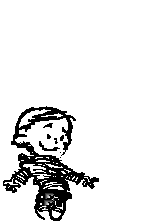






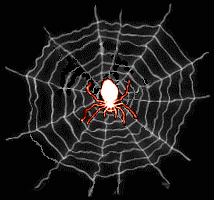








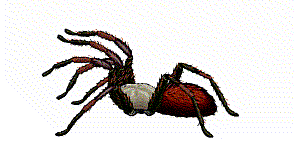


































































































































































































































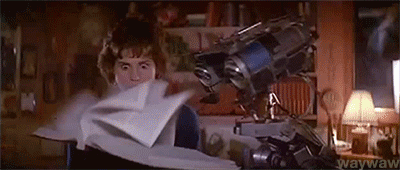











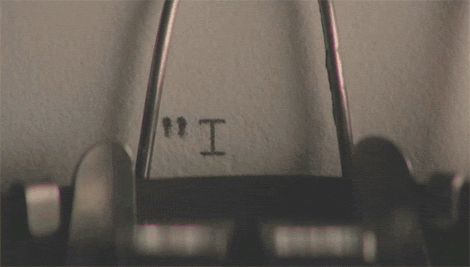





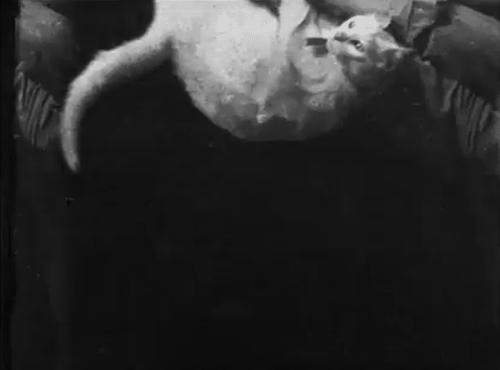




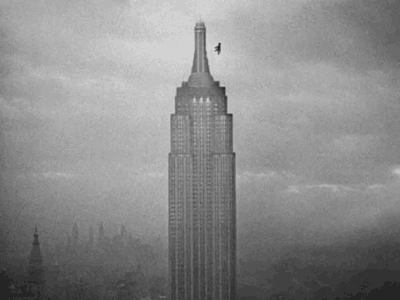







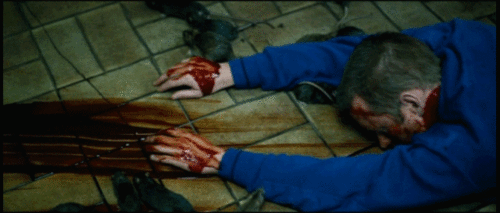












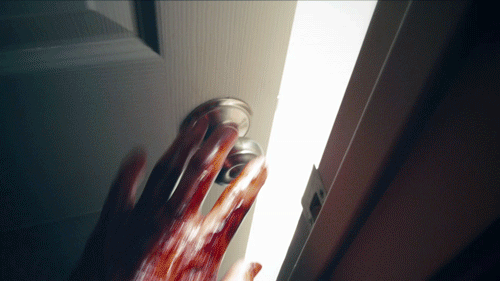
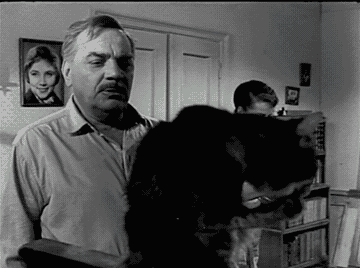







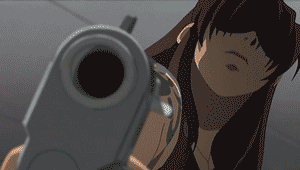
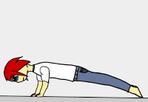





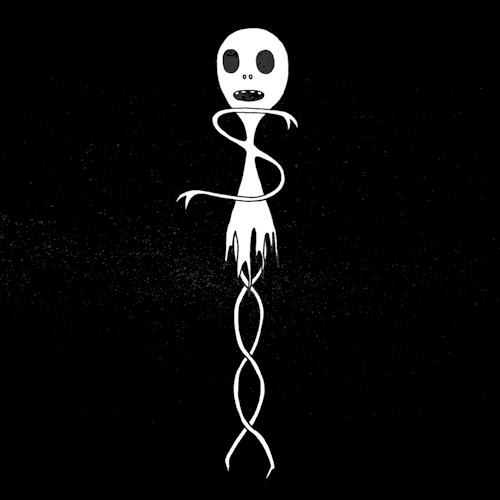
















.jpg)






























































































































































































































































































































































































.jpg)


























